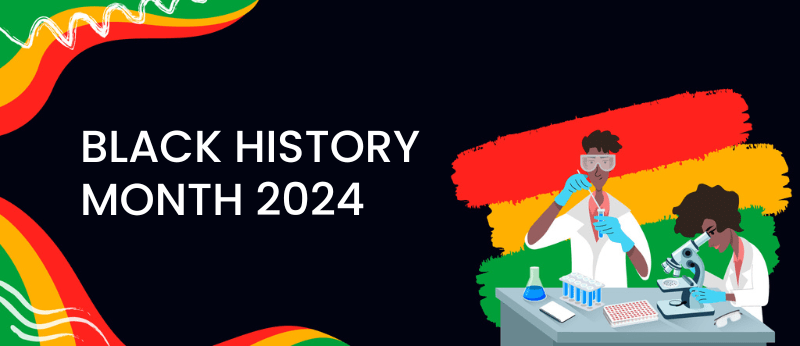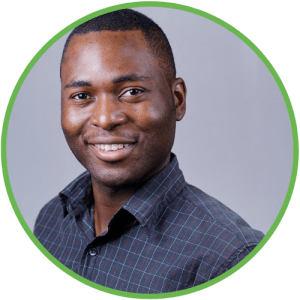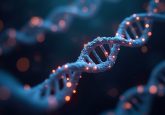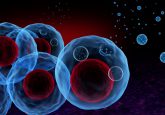Black History Month: an interview with Rene Fuanta

 Rene Fuanta
Rene Fuanta
Associate Professor
East Stroudsburg University of Pennsylvania (PA, USA)
Dr Fuanta is an associate professor of chemistry and biochemistry at East Stroudsburg University of Pennsylvania (ESU; PA, USA). He joined the Department of Chemistry and Biochemistry in fall 2018. He teaches introductory and metabolic biochemistry courses and advanced courses including biochemical methods, proteins and nucleic acids. His research focuses on mechanistic enzymology and the characterization of the mode and mechanisms of bacterial and protein inhibitors using various biophysical techniques. He screens various metabolites for their antibacterial properties, specifically targeting respiratory tract pathogens like Mycobacterium tuberculosis and Pseudomonas aeruginosa via grants from state and local agencies. He is the director and program administrator of the biological sciences program at ESU – accredited by the American Society of Biochemistry and Molecular Biology (ASBMB) and is the regional associate director of Sigma Xi – MidAtlantic region. Also, a former director-at-large at Pennsylvania Academy of Science. He reviews journals like ACS Infectious Disease, BBA Proteins and Proteomics. He also doubles as a facilitator of ACS NFW and ACS Bridge program and was named 2019 ASBMB Education Fellow. He obtained his PhD from Auburn University (AL, USA) and his bachelor’s from the University of Buea (Cameroon, Africa).
1. Please tell us about yourself and how you got to where you are today
I was born in Cameroon, child number five out of a family of six. I grew up in the Anglo-Saxon region of Cameroon-Buea, where I attended primary and secondary school [the US equivalent of K-12], then later college at the University of Buea’s department of microbiology and parasitology. I later immigrated to the US for graduate school in Auburn University’s department of chemistry and biochemistry. The choice of Auburn University was in large part thanks to another Auburn alumuni, Dr Elizabeth Ndontsa who at the time had just defended her doctorate and was relocating to the west coast. I enrolled in Auburn’s grad program in 2013 and graduated in 2018. Thereafter, I relocated to Pennsylvania, joined the faculty body at East Stroudsburg, and fast forward to the current day, an associate professor of chemistry and biochemistry at East Stroudsburg University of Pennsylvania.
2. What does your role involve at the East Stroudsburg University of Pennsylvania?
I coin my role as training the next generation of independent, driven, analytical and data-driven scholars. This comes in various forms: teaching, research, advising, curriculum development etc. My courses cover, broadly speaking, fundamental principles of biochemistry with applications beyond the classroom. I tend to have a slightly hands-off approach to research, giving students the space to think about the problem and potential solutions and come up with ways to better manage their time, rather than hover over them in the lab.
My goal is to have students be the most independent version of themselves. How long it takes varies per student. I also advise students on career paths, courses and life in general (where appropriate). I refer to on-campus services as the need arises or when an issue is beyond my expertise. Part of my role as the director of the biological chemistry programs is to ensure the program meets the accreditation standards by updating the curriculum to reflect the changes in the very dynamic area of biochemistry and molecular biology and impart our students with current methods and techniques. My aim is to hopefully inspire them to see themselves not only as innovators but as potential leaders in any milieu they find themselves.
3. What motivated you to pursue the career you are in now?
I’d always had deep admiration for academia and the pursuit of innovation, scientific and technological advancement. But that was supported and built on many a strong shoulder. I had tremendous support from my family, teachers, faculty etc., to pursue a career in STEM. Yes, it took a village. They (teachers and faculty) deserve their accolades and serenades, which hitherto was only in my heart. The compass needle moved after losing my aunt and uncle who died very young. At the time I could not lay a finger on what it was, but could only gather it was an infectious disease. Thereon, I tasked myself to have a career in academia, targeting infectious diseases, and to positively feedback to the younger generation and hopefully inspire them as I was by those who taught and trained me.
4. Are there any key resources or places where you found support when facing challenges in your career?
I’d always lean on family and meditation for internal peace. Whether it be making a silly video, taking some ditzy pictures or cooking and making a mess…sometimes you need to step away and heal. Having some quietude and meditation I find, are crucial in regaining my marbles. I also sort out conferences, like NOBCChE meetings, supporting and promoting Black chemists and chemical engineers, and reached out to other minority faculties at other institutions as well as other community events.
5. What is your greatest achievement?
My greatest achievement is serving as a mentor to a younger cadre of scientists and innovators. It has been very humbling and I appreciate every opportunity I get to do it.
6. What advice would you give to young Black scientists to help them thrive in the scientific field?
*This does not detether academia from the plights of minorities in general.
Academia is quite challenging and overwhelming, especially for minorities. There’s progress, though at an alarmingly slow rate. I encourage you to seek out meetings and conferences (like NOBCChE) that promote Black excellence. Seek out a mentor or someone you look up to in your department, college, field etc., that you can reach out to for help in navigating your professional and/or personal endeavors.






